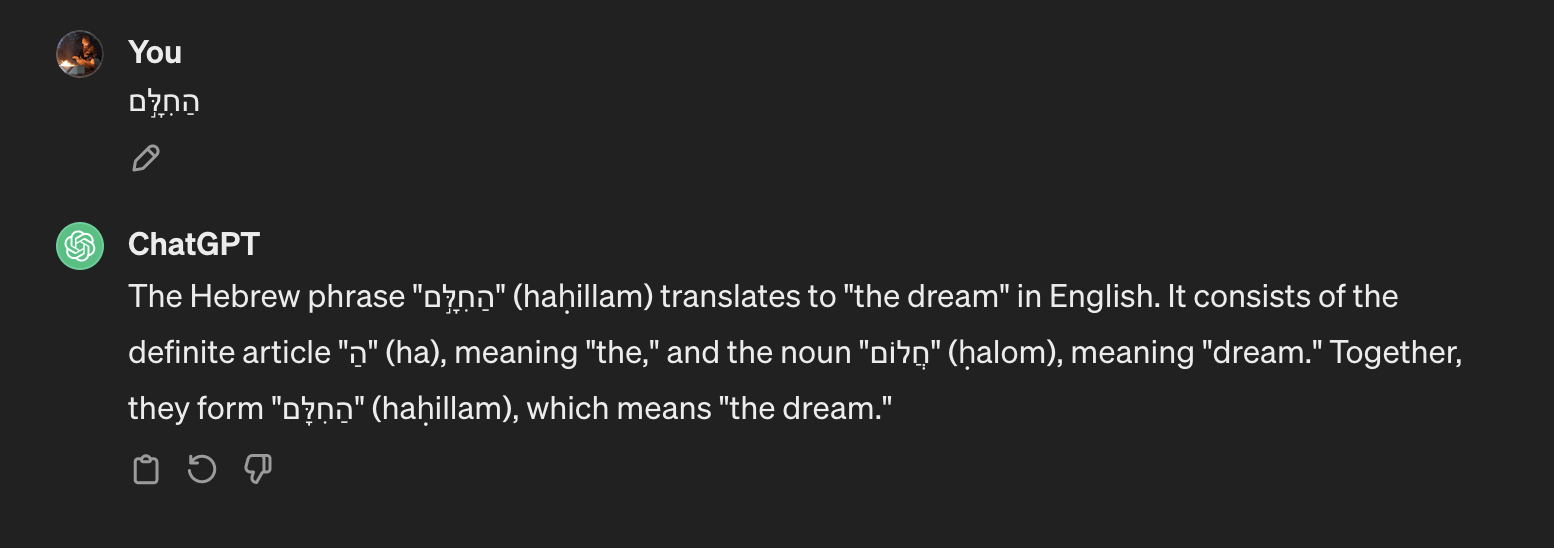With the help of AI we can study words like never before. We are constantly coming up with ways to utilize this, especially when it comes to more unique words, or difficult passages. For example, cross referencing a word through dozens of passages to to try to get a better understanding of the word as it is used throughout scripture takes hours, but with AI a comprehensive comparison is made in a matter of seconds. Because AI is trained on just about all the philological information out there on Hebrew and Greek, it is far more capable:

AI is also able to be directed to provide various interpretations of a given verse or passage based on any context/bias imaginable. Enigmas and riddles are found everywhere. In Psalm 69:2 for example, every single translation we could find interprets the Hebrew text as “floods overflow me” because the language is rather difficult. But this is, if we are honest to the text, a false translation. To accord with the true words (because we want the truth) we can translate it for what it is: an ear of grain. And these can be quickly examined with the help of AI:

Understanding this, we are able to get closer to “everything coming together” as this text finds a basis in something from Genesis 41:7 where “finely-crushed heads of grain swallow up plump ones”:
And the Finely-crushed Ears-of-grain are swallowing the [eternal self את] seven Plump Ears-of-grain and the Full ones. And Pharaoh is awakening, and behold! a dream!
Genesis 41:7 RBT
One of the most powerful advantages however is the ability to process Hebrew words or clauses with the niqqud (vowel points) stripped. The Masoretes added these to the best of their knowledge as to the correct pronunciations and meanings. But in many cases the vowel point obscured or distorted the original meanings.
The Masoretic points on the word “הַחִלָּם” (haḥillam) as found in Genesis 11:6 with the לָּ signifying a double letter, gave translators the idea that this was a Hiphil causative infinitive 3rd person plural verb based on the root “חָלַל” meaning “to bore/pierce/begin.” AI noticed it for what it was:

Thus giving the rendering “this one is the Dream to make” instead of “this they began to do.”
